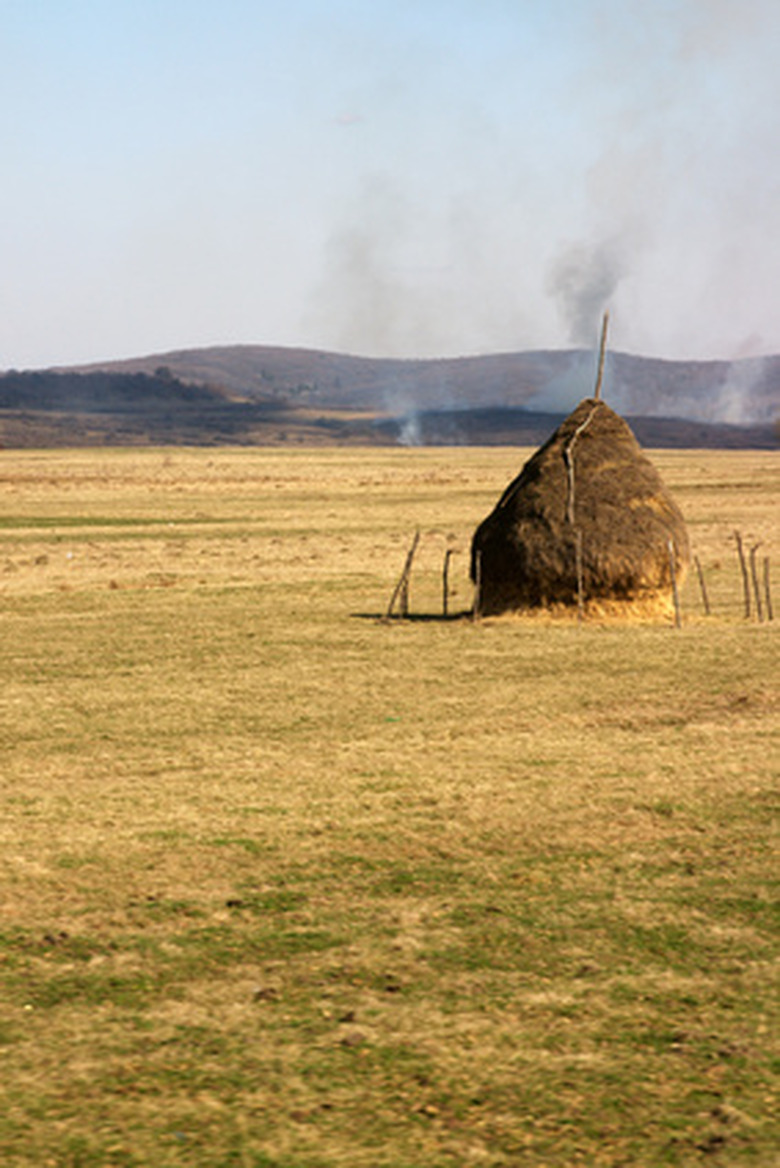How To Care For Burned Grass
Things Needed
- Rake
- Loam
- Grass seed
- Pine straw
Burned grass occurs, most of the time, as a result of using a fast-release fertilizer on wet grass. The fertilizer does not have the chance to wash away in time and nitrogen burns the grass. Dog excrement and urine in small and large quantities can also burn grass, and so can road salt, as well as too much sun. Whatever the cause, the burns ruin the visual appeal of the lawn. In order to restore it, you must care for the spots, eradicating both the cause and the effect.
Step 1
Rake the burned areas, clearing away dead grass. Once the grass is brown, in many cases it has been killed and cannot come back. (For cases where your grass has not been killed, see the Tips section.)
- Burned grass occurs, most of the time, as a result of using a fast-release fertilizer on wet grass.
- Dog excrement and urine in small and large quantities can also burn grass, and so can road salt, as well as too much sun.
Step 2
Flood the burned areas with water each morning of the next week, especially if it does not rain. This will clear the excess nitrogen from the root regions of the grass, if this is indeed the problem.
Step 3
Clear away the top inch of soil. Replace this with an inch of loam to get a fresh start.
Step 4
Scatter new seed over the loam to beef up your lawn. Without new seed these areas will remain bare and weeds will eventually take over. Place pine straw mulch over the seed to protect it while it germinates and grows.
- Flood the burned areas with water each morning of the next week, especially if it does not rain.
- This will clear the excess nitrogen from the root regions of the grass, if this is indeed the problem.
Step 5
Water the new grass seed daily, keeping it moist until it begins to grow vigorously. Try to do this in the morning, allowing the grass to dry out during the day. Return to your regular watering schedule when the new grass is established.
Tip
Regular, deep watering could cure some cases of sun scorch as long as the grass is not yet dead. The water should penetrate at least 6 inches deep so the grass forms deeper roots. OnlineTips.org also recommends adding a pound of sugar for every 300 square feet to enrich your lawn. Areas burned by dog urine are often small enough to be quickly fixed with sod plugs. Water the area thoroughly for several days before planting the plugs. Some dog-burned areas will repair themselves with time if the burn is mild. If you realize that you have used fertilizer improperly on your lawn, try watering regularly as a cure. Applying activated charcoal in granular or liquid form to your lawn may work to reverse the effects, as long as the grass is not dead. Charcoal works by neutralizing the nitrogen and will also work for mild dog urine burns. Use a slow-release fertilizer instead of a quick-release fertilizer. This will decrease the chance of burns. A fertilizer spill over a small area should be treated immediately by raking up as much fertilizer as possible, then watering the area heavily for several weeks.
